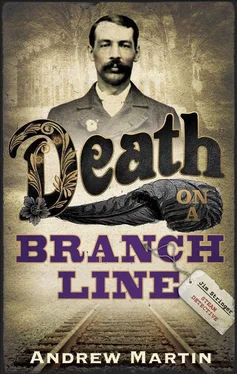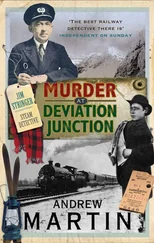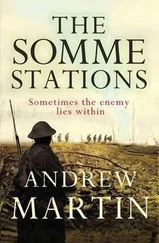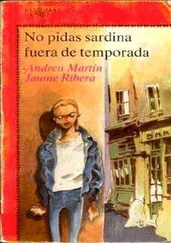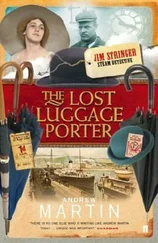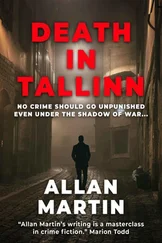Andrew Martin - Death on a Branch line
Здесь есть возможность читать онлайн «Andrew Martin - Death on a Branch line» весь текст электронной книги совершенно бесплатно (целиком полную версию без сокращений). В некоторых случаях можно слушать аудио, скачать через торрент в формате fb2 и присутствует краткое содержание. Жанр: Классический детектив, на английском языке. Описание произведения, (предисловие) а так же отзывы посетителей доступны на портале библиотеки ЛибКат.
- Название:Death on a Branch line
- Автор:
- Жанр:
- Год:неизвестен
- ISBN:нет данных
- Рейтинг книги:5 / 5. Голосов: 1
-
Избранное:Добавить в избранное
- Отзывы:
-
Ваша оценка:
- 100
- 1
- 2
- 3
- 4
- 5
Death on a Branch line: краткое содержание, описание и аннотация
Предлагаем к чтению аннотацию, описание, краткое содержание или предисловие (зависит от того, что написал сам автор книги «Death on a Branch line»). Если вы не нашли необходимую информацию о книге — напишите в комментариях, мы постараемся отыскать её.
Death on a Branch line — читать онлайн бесплатно полную книгу (весь текст) целиком
Ниже представлен текст книги, разбитый по страницам. Система сохранения места последней прочитанной страницы, позволяет с удобством читать онлайн бесплатно книгу «Death on a Branch line», без необходимости каждый раз заново искать на чём Вы остановились. Поставьте закладку, и сможете в любой момент перейти на страницу, на которой закончили чтение.
Интервал:
Закладка:
Along the lane leading down from The Angel, a doorway in the low, bent houses stood open and one of the old ladies stood by it, as though presenting the place for inspection. Lydia, walking ahead, gave her good evening but received no response. I tried the same, with the same results. She might be near-blind. She looked as though she could see, but only very far-off things. I then overtook the wife, and stood with arms folded in the station yard. She walked towards me shaking her head.
I indicated the station.
‘You’re off in there,’ I said. ‘The 8.35 is an “up”. It’ll take you to Pilmoor, and you’ll change there for York.’
‘That’s what you think,’ she said, standing before me on the dusty stones.
It was a good thing the village was empty, because we were all set for a scrap.
‘Here’s the return half of your ticket to York,’ I said.
‘What do you think I am? A consignment of goods?’
I could hear the beat of the approaching train.
‘There’s been a bad business here. A man is waiting to hang for it, but I don’t think he’s the guilty party. Gifford was nearly done in because of what he knew. There’s a man at the Hall threatened with death if he spills the beans. It’s no…’
‘Well, you’re not about to spill the beans,’ the wife cut in. ‘You don’t know anything.’
‘It’s not me I’m worried about.’
‘I’d have thought you might want a bit of moral support when you see that man Usher again.’
The beat of the train was loud now. It was approaching at a lick.
‘Harry will want to see you anyway,’ I said.
‘You know perfectly well that he’ll be having a lovely time with Lillian Backhouse and all her kids. She’ll have given them lemonade today, and they’ll all have gone swimming in the river.’
‘But you told her not to take them swimming in the river.’
‘But I know perfectly well that she will do, and that Harry loves going.’
‘Why did you tell her not to take him, then?’
‘Because it’s dangerous.’
The 8.35 was bustling through the woods, dragging its banner of smoke.
‘For once in my life I’ve been invited to a party at a grand house,’ said the wife, ‘and if you think I’m going to climb up into a filthy third-class carriage and ride to Pilborough with some lecherous old man eyeing me from the corner seat…’
‘It’s Pil moor, and there won’t be any lecherous old man.’
‘There will be. There always is. Ask any woman.’
‘It’s coming too fast,’ I said, turning.
The two of us looked up at the station, and the train was there, rattling and thundering; each coach was itself for a small second, and then… a shocking silence. It had run right through.
I ran across the yard, and onto the ‘up’ platform.
Woodcock the porter was on his high perch, turning and laughing. The signalman, Eddie, laughed back at him from his balcony. They hadn’t bargained on the train not stopping. Station master Hardy was in his doorway; he retreated into it, back towards the little soldiers, as I approached, asking, ‘Did you have a traffic notice about that?’
He shook his head like a little boy.
‘The lines are down,’ he said, ‘and no-one’s come by.’
‘Then the driver’s had orders from…’
‘Oh, from Pilmoor, most likely,’ Hardy said.
‘It was to stop anyone leaving,’ I said.
‘But no-one wanted to leave,’ he said, and he indicated the empty platform.
The 8.35 had left a smoky tang in the air. I looked up at the signals. Woodcock and Eddie were both smoking, looking down with the remains of smiles on their faces. Were they on the inside or the outside of events? Where had they been in the afternoon? Slacking in the village? The urge was suddenly strong on me to see whether John Lambert was still living, and to try my luck again with the Chief.
I walked through the wicket and back into the station yard where the wife stood waiting.
‘More mysteries?’ she said, as I approached, and she didn’t wait for an answer, but just said, ‘Come on, we’ll be late.’
It was getting dusk as we struck out along the lane indicated by the sign reading ‘TO THE HALL’. The wife was walking a little way ahead, and it seemed to me that she turned into the woods early.
‘Hold on,’ I called out.
She’d taken a woodland track we’d not seen before.
‘It’s this way,’ she said. ‘We’re going to the back of the house.’
‘That’s a bit out of it,’ I said. ‘We might as well be servants.’
After three minutes in the wood, we came to a tall gate, propped open.
‘Cap off,’ said the wife, as the Hall came into view.
The back of the house looked the same as the front but even handsomer, as I might have guessed, for the aristocracy would beat you all ends up. There was a stone pond immediately behind the house, and a very mathematical-looking garden had been made around this. Two stone staircases curled down from either side of this garden to reach the terrace, which was dramatic like a stage, except that it was sunken rather than high. Two wires were strung high across the terrace, and the paper lanterns hung from these. They held my attention, each like a little paper concertina: orange, red, green, and giving a beautiful soft glow, but one had got scorched and smoke was racing away from the top of it as the paper burned.
The lanterns were like toys, childish things, and yet the Chief stood underneath them. He was to the rear of the terrace and the sight of his clothes hit me like a station buffer.
The Chief wore an evening suit: trousers with braided seams, varnished shoes, white bow tie — and the hairs on his head were mustered into parallel lines and held down by Brilliantine. The perfection of the suit pointed up his natural imperfections, and I knew that I was for once seeing the Chief out of his element. The fellow he was speaking to, on the other hand, looked practically born to wear an evening suit, and he had one foot raised on a white iron garden chair which gave him a confident look. He was smoking a very white cigarette, and this made him seem to be pointing all the time, saying, ‘Now look here, it’s like this,’ while the Chief listened and looked as though he wanted to smoke but daren’t.
This second man was Captain Usher.
A couple also stood waiting on the terrace and these I knew must be the Chandlers: the brother-in-law of the murdered man and his wife. Robert Chandler was a bald man whose head went in slightly at the middle like a peanut shell; his wife was a round and pretty woman in a lilac dress with a train. They were both somewhere in the middle forties, which made them about of an age with Usher.
Of John Lambert there was no sign.
‘But they told us not to dress,’ the wife was saying, in a tone of voice I’d not heard from her before, for it seemed to hold real fear. We were approaching two avenues made by dark firs that had been cut into cones like witches’ hats. Which one to choose? Would there be a right one and a wrong one? You could bloody well bet there would be.
But before we reached the trees, an advance party approached us: a chambermaid and a manservant of some sort — two servants kept back from Scarborough. Both carried trays holding bottles and glasses. They closed on us and then divided, the parlourmaid making towards the wife, the manservant heading my way.
I realised that he was the servant I’d seen that morning, the amiable one who’d directed me to the gardener’s cottage. He no longer looked horsy, but like an expert on wines.
‘Hock or claret, sir?’ he said.
I took a claret because it was nearest. But I felt I moved too fast, because the man said, ‘Or there’s champagne at the table, sir?’
Читать дальшеИнтервал:
Закладка:
Похожие книги на «Death on a Branch line»
Представляем Вашему вниманию похожие книги на «Death on a Branch line» списком для выбора. Мы отобрали схожую по названию и смыслу литературу в надежде предоставить читателям больше вариантов отыскать новые, интересные, ещё непрочитанные произведения.
Обсуждение, отзывы о книге «Death on a Branch line» и просто собственные мнения читателей. Оставьте ваши комментарии, напишите, что Вы думаете о произведении, его смысле или главных героях. Укажите что конкретно понравилось, а что нет, и почему Вы так считаете.
